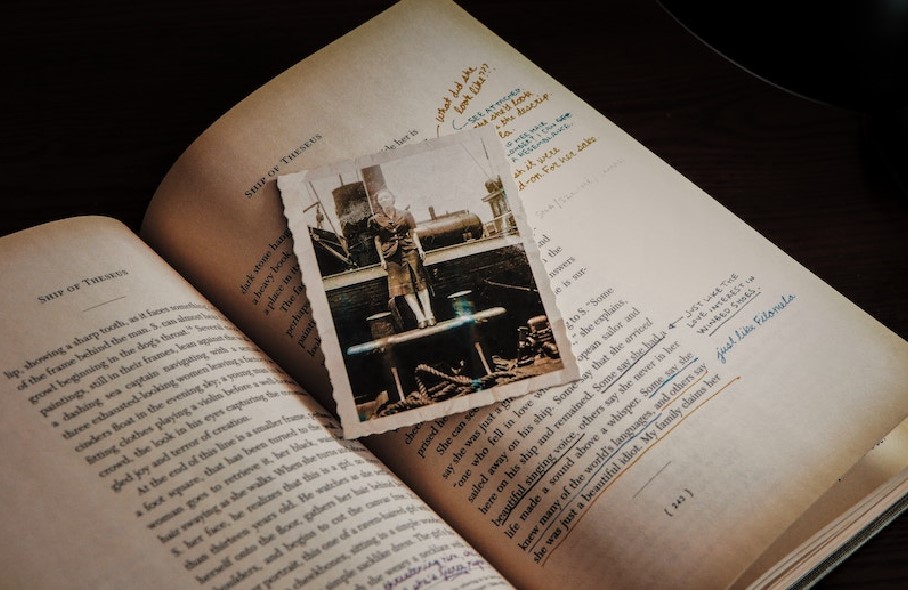Maybe one day, you felt this thrill coursing through your veins, and you said to yourself, ” Wow! How to write a memoir?” The road to writing a memoir commences the moment we notice that experience from our lives needs to be told.
It looks rather simple from the beginning stage— even easier, maybe than fiction. In the end, there is always no for pretending, inventing, and playing the role of the main person. It is just you. However, memoir writing also poses its challenges, which it owes to them alone, on the condition that you tell the truth of your own life as you understand it. Let’s look further into how to write a memoir while we look closely at the real purpose and essence of memoir writing. What is the meaning of a memoir?
Simple Breakdown of Memoir

While a novel is an autobiography, the memoir is not. It is, in other terms, not your whole life story. Instead of telling a story, it is like a slice of life – you can use it as a part of the story that talks about your life, or it could be a story related to your life.
The range of memoirs will be different in different cases. It will be the case in the majority of instances, though, that the hopeful memoirists will come to the page with too much information that needs to be severely trimmed. A good way to start is to reflect on your themes, which will help you narrow down your ideas.
To write an exceptionally good memoir, writers must ask themselves the following things before beginning:
- The relation of the scene to the memoir’s theme?
- Does the story make sense as a memoir?
Owing to the nature of memoir, which creates empathy and ideally makes your story intelligible to others, the primary goal is to share your experiences. The function of a memoir is not really “what happened,” since unless you are famous, what happened in your life will not attract your audience to the pages. What captivates readers may be the subject matter (surviving trauma that happened to them, following self-help books’ best practices, living in prison) or the theme (addiction, their relationships with their parents, repeating the family patterns, self-defining).
A memoir that doesn’t present the author’s attempts to find meaning in their story is usually tough to read. Perhaps a reader asks himself a question: is there any point? If the memoir has been meaningless for the reader, the memoir may be more of an important fact than something that the reader may grow from, which are the two key elements that are only present in a memoir.
Differences Between MEMOIR & AUTOBIOGRAPHY

Although both memoir & autobiography draw on the author’s own experiences for inspiration, there are five main distinctions between the two genres:
The Difference in Structure/Outline
Since an autobiography tells the whole story of a person’s life, it is usually arranged in chronological order. When narrating a memoir, the chronology of life events becomes secondary to what might be considered a better idea for the story. Therefore, such kinds of memoirs aren’t always required to follow strictly historical events.
Scope
In contrast to autobiographies, which aim to give the reader a complete picture, memoirs only concentrate on certain timelines in the author’s existence. The comparison of authors’ autobiographies and personal memoirs to a person’s CV and resume could only be confusing. Only the writer’s handpicked and meaningful experiences are recorded in this case.
Writing Style
Autobiographies are essentially narrations of things that happened, while memoirs expose the writer’s connection to those moments. To be more specific, experience doesn’t simply entail the occasion you could have gone through but also those feelings, thoughts, and individual experiences. In this memoir, the writer prefers going opposite of writing formally. This would let them experience more. One of the most distinctive features is that autobiographers have the liberty to use the devices of fiction as tools, such as setting a scene via dialogue.
The Factor of Philosophy
Besides, all the differences between the two genres, which are based on the relation between facts and memory, should be mentioned. This imprecision makes memoirs different from most other forms of literature, except the reader is not asked to give credence to the fidelity of the facts but rather to the emotional truth being relayed. Furthermore, the memoir writer also uses the imperfection of memory in the telling itself.
Connection to the Audience
Although memoirs and autobiographies differ by the protagonists they cover, readers look up to the first and gravitate to the second to understand a story with personal themes and clear ideas. Memoir, therefore, to a certain extent, is more related to a situation where the reader can connect on a personal level. This suggests that everybody can compose memoirs as well. Ready to get inspired? Now, let’s move on to how to start a memoir.
How to Write a Memoir About Yourself

The First Step: An Idea
The first thing that a memoir writer struggles with is how to begin a memoir. Just like everything else in life, even getting started is the most difficult task. If you don’t know what to write about, try the “I Remember” writing prompt. This exercise is an excellent method for coming up with a list of memories. From there, proceed to pick one memory that carries the strongest emotional weight and start yours.
Write A Short Outline
The memoir ghostwriter’s most valued advice is to always combat the desire to go back to “the beginning.” Start with the storyline or scene that haunts you and leave till the end, the graphic film. By getting started once and picking up the pace continuously, the best way to write up a draft is to try to keep the inventory of the gained moves growing. The right start assures us to start writing, and that could be a climax or any detail of life.
Preparing A Good First Draft
Now that you are moving, keep the pace. It is very difficult to strike your perfect expression in the middle of writing. If you speak carefully while analogizing your words, you may lose them. Lastly, it removes your consciousness and can transform you into a self-doubter, and writer’s block might arise. Keep in mind that usually, the majority, if not all, writers, even the renowned ones, write shit in the rough first draft. You start to rewrite what you have written down when trying to chase after the perfect language in your draft. Hence, you get discouraged from writing and sometimes hope to get a memoir writing service.
Put It Aside
Upon preparing a revised version of the text, try to put it aside for a week or more and avoid the temptation to read through the duration of that time. According to Stephen King, first drafts should be stuck in the drawer of your writing table for a minimum of six weeks for re-reading. This elapsed time gives us this space, which is what we need to get critical distance as we revise and edit the drafts that we, after quite a long time, have created.
Proofread and Finalize!
You know that your job is done when you become satisfied with your story, and then you need to start editing. Review your quality of words and check if you made some of the common mistakes in writing. Be aware that revising is not the same as editing; irrespective of that, you’ll be working on both. Lastly, when your memoir has been written, give it out to be read! If you are still struggling with writing a good memoir, you can invest either more time or money in it. Time, as in, you will focus on writing and practicing what you’ve learned. On the other hand, there is money for hiring an exceptional Memoir Writing Service.




